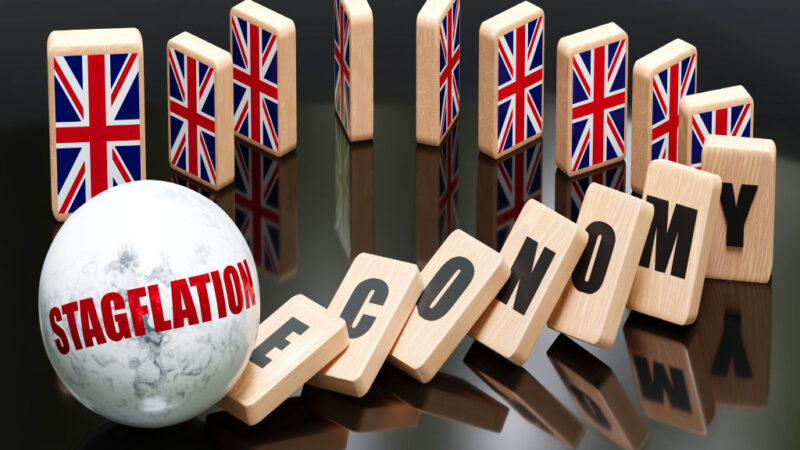The reader mailbox is overflowing with some cracking commentary from… none other than yourselves. There were emails about inflation, discussion of stagflation, commentary on a lack of investment and one very important correction to one of my articles feature below.
Unfortunately, I couldn’t find much to disagree with or argue about in your emails. At Fortune & Freedom, we like to tell people what they need to hear rather than what they want to. It’s disconcerting when too many people agree. But… perhaps that’s a sign that things are about to change?
Before we dig into some of our real topics, I’ve got to publish something important. This reader cleaned up some rather important omissions in my article about the investor to emulate right now, for which I apologise:
Hi Nick
If you’re going to quote [Hugo] Stinnes, don’t bring only half of the story. It’s hard to ignore that once the tide turned the same strategy destroyed his entire fortune in less than a year. Nor the fact that most of his original industrialist capital came from misappropriating the property of a Bessarabian Jew, Mayer Wilderman.
The very same Hugo Stinnes was also responsible for financially backing Adolf Hitler, who blamed the Jews (not Stinnes) for the gluttonous act of making money from inflation at the expense of the German people, in [Hitler’s] failed putsch in 1923.
The past may hold many answers, but if you are looking for someone to emulate in order to get to the “right side of history” Hugo Stinnes is not your man.
Regards
Y.B.
Well said.
I did hint at the sordid details of Stinnes’ life, but should’ve included them more explicitly.
But I stand by the idea that Stinnes understood the nature of inflation and how to profit from it.
As for the collapse of Stinnes’ empire after his death, the currency reform that ended Germany’s hyperinflation was impressively radical. If you thought Paul Volcker was tight (when it came to monetary policy), you should check out what happened in Germany back then.
The deflationary shock wiped out debtors, like Stinnes’ business empire. That should be a lesson for everyone who is borrowing money because it’s so cheap.
Could we be in for the same story once our own inflation comes back down?
More on that soon – once I’ve finished the book about it. It features someone equally villainous as Stinnes the main character…
The next reader asked about the definition of stagflation:
Hi Nickolai,
My question is, Stagflation…
From my understanding of Stagflation is rising prices (inflation) with wages chasing inflation.
Therefore who profits from stagflation? The money pool is the same or gets enlarged by money printing to increase liquidity.
We the consumer have to pull in our horns, as it costs us more on essential items, our daily living things that we must have to survive.
We can all see our salary buys less, but who or which sectors profit from stagflation as the money has to go somewhere.
Kind regards
M.
There are always winners and losers from any economic trend. The media likes to focus on one or the other in order to sell a narrative. This is especially true during elections. But there are not many one-armed economists around… who didn’t get maimed in an ideologically driven revolution, anyway.
Wise economists would say “on the one hand…” and “on the other hand…” Or they’d point out that everything is about trade-offs. But politicians don’t like those sorts of economists. It doesn’t help them much. And so they pick ones who are willing to pretend there’s only one side to each story.
When it comes to stagflation, debtors benefit because their debts become worthless. This is especially true of the government and when central banks suppress interest rates below the rate of inflation, like now.
What M. describes about wages chasing inflation is a wage spiral. When rising wages push up spending and therefore prices, inflation can become a self-fulfilling prophecy.
This is what policymakers are afraid of right now. It’s why so many industries are on strike around the world. Governments don’t want to raise wages for fear of triggering wage-based inflation. But this hasn’t happened… yet.
Instead, we’ve had costs surge and companies passing on this cost. That’s why Producer Price Indices rose before Consumer Price Indices.
Stagflation itself is inflation while the economy falls behind or outright shrinks. Wages are only part of that situation, even if an important part.
Stagflation is unusual because, when the economy shrinks, that usually causes prices to fall.
But that is the big misnomer, and why I go to great pains to point out that rising prices are not always true inflation.
Inflation is the devaluation of money. But prices can rise for many reasons other than the value of money falling. In other words, the changes causing prices to rise could be happening in the real world rather than the monetary realm. If you can’t tell the difference, then you don’t know what’s going on in the economy. That is basically where a lot of central bankers are right now.
This is the big question investors face at this moment: as economies go into recessions, will inflation moderate or not? Will we get stagflation or just a recession, in other words?
This reader made a wonderful comment about my article “How the baby boomers will be blamed for inflation”:
Hello Nick,
Just one comment – what about the “hidden” deflation?
Electric cars are overall much cheaper to run.
Smartphones now fulfill the role of phone, tv, laptop, radio, work device, fax, camera, torch, clock alarm, anything else that used to be bought as a single purpose device.
I am not saying you are wrong – I entirely agree with you, but there are hidden “good points” too. One such advocate is Cathie Woods of Ark Invest.
Kind Regards
J.M.
I don’t know about those electric cars given their upfront cost and depreciation to resale value, but your point about phones is excellent. Especially when applied to the developing world, by the way.
I’ve just bought a house and am considering buying one portable projector instead of several TVs. We already have a tablet we use as a TV. But the point is that we’ll be buying a lot less stuff thanks to technology.
The trouble is that, when it comes to technology, the inflation statistics are a little bonkers. As the US Bureau of Labor Statistics sees things, prices for televisions are 99.16% lower in 2022 versus 1950.
This is obviously rubbish.
What’s going on here, is a quality adjustment . TVs are much better in 2022 than they were in 1950 and so the price is adjusted for this improvement by economists.
But when you and I buy a TV, the price relative to the TV we might’ve bought in 1950 is not down 99%. And so this is deeply misleading within the inflation data.
Try and convince a TV salesman to sell you a TV for 99.16% less than the 1950s price if you don’t believe me.
N. is almost as sceptical as me about governments:
Good afternoon Nickolai.
Your article made a lot of sense, written in plain speak they often do. Most governments have got too large in their bureaucratic organisations, with the inevitable result of any organisation that has outgrown its original purpose, and is concentrating on its organisational function rather than its operational function. It is the lack of operational function that is causing disfunction in the economies.
A company can only invest in what it understands to be achievable, short term and with a long term projection. I would suggest that every facet of the economic environment is in a state of flux. The financial markets do not know where to place their money. The manufacturing markets of goods and commodities cannot develop a strategy because the whim of governments keep changing. Moralistic legislation does not aid realistic function, they will always be in conflict.
The money men would like to use their money, but where? If the western governments keep moving the goal posts, the field on which the game is played and the type of ball used, little Johnny is going to go and play somewhere else eventually.
I would suggest that a lot of large companies will relocate their operations to within the BRICS/ New Development Bank areas, (the west will still require their product,) where the operational environments within BRICS/ NDB are more akin to what the west used to have – that of a conducive environment for future development and sustainable growth.
Regards
N.
Elon Musk’s experience in Germany is a comical example of N’s point.
S. has lost hope altogether:
Nick, we sold our little investment portfolio in 2008 when old Gordon was pm. Was going to reinvest for our g/ kids, but the way Tory Labour Libs are talking of treating people who dare to own more than one house, well it’s just not worth it. Better to spend your money and get on the benefits gravy train. Under this lot there is no future for ordinary British people.
S.
There is a future. You just have to be willing to go against the grain with your financial decisions.
Quite frankly, that’s why Fortune & Freedom exists in the first place. And why go-against-the-grainer Nigel Farage founded it. And there’s no shortage of people looking for something like us.
S – don’t give up. The future of the British people will be despite what governments have in store for us, that’s all.
To find out more about specific actionable advice you can take to seize control of your own financial future, despite the government’s best efforts, check out Nigel Farage’s sister project, UK Independent Wealth here.

Nick Hubble
Editor, Fortune & Freedom




